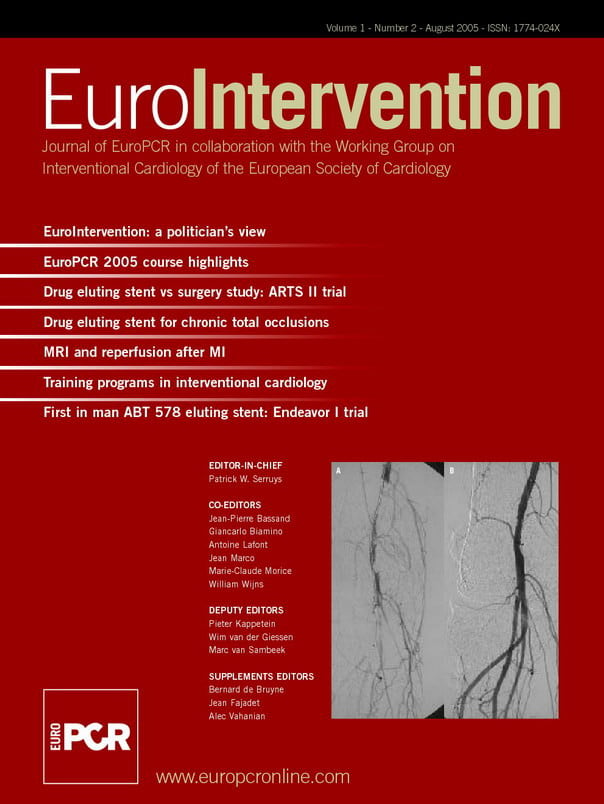Dear colleagues,
EuroIntervention is the culmination of a major decision to promote for the first time in Europe the fantastic potential in the field of interventional cardiology. Europe has been and remains the most creative frontline community in interventional cardiology. This deserves a dedicated specific journal in order to voice the unique spirit of our European leaders. Therefore EuroPCR and the ESC via the Working Group of Interventional Cardiology have taken the decision to harness their energy and talents to deliver a strong, homogeneous message. The aim is to strengthen this collaboration with the creation of EuroIntervention and is the first statement of a common strategy to improve education and science in the field of interventional cardiology.
The co-editorship mirrors the boards of EuroPCR, ESC, and the WG on Interventional Cardiology (WG10). The International Editorial Board includes worldwide recognised leaders, and the readership is currently more than 10 000. This provides us the opportunity to inform and debate using the journal as our common medium.
I would like to take this opportunity, in this first WG10 column, to announce that the Working Group on Interventional Cardiology will officially launch in Stockholm, during the ESC’s annual meeting, six fellowship grants sponsored by major industrial partners, Lilly (two grants), Boston, Medtronic, Cordis, and EUROPCR. This is a clear sign of prioritising our leadership in education in order to identify and support the next generation of interventional cardiologists.
The fellowship grants are targeted at cardiologists younger than 36 years with a previous experience of at least 300 coronary angiograms. We request that training centres can confirm that on the basis of their ability to perform in excess of 600 percutaneous coronary interventions but are also dedicated and personally committed to practical training in the fellowship programme.
The aim of the European fellowship programme is not only to focus on an excellent standard of practical training but also to supervise and aid fellows in clinical science, which will be translated for example into active participation in the research activities of their center, to be expressed in abstract presentation at the annual meetings of the ESC, clinical cases at EUROPCR, and publications in EuroIntervention.
Once the year long fellowship is completed, the fellow will be involved in activities in the working group, and will be supported in developments on a national and European level. These fellowship grants will assist us in creating together a new and dynamic generation of interventional cardiology in Europe. Further practical information will be available on the website of the working group.

